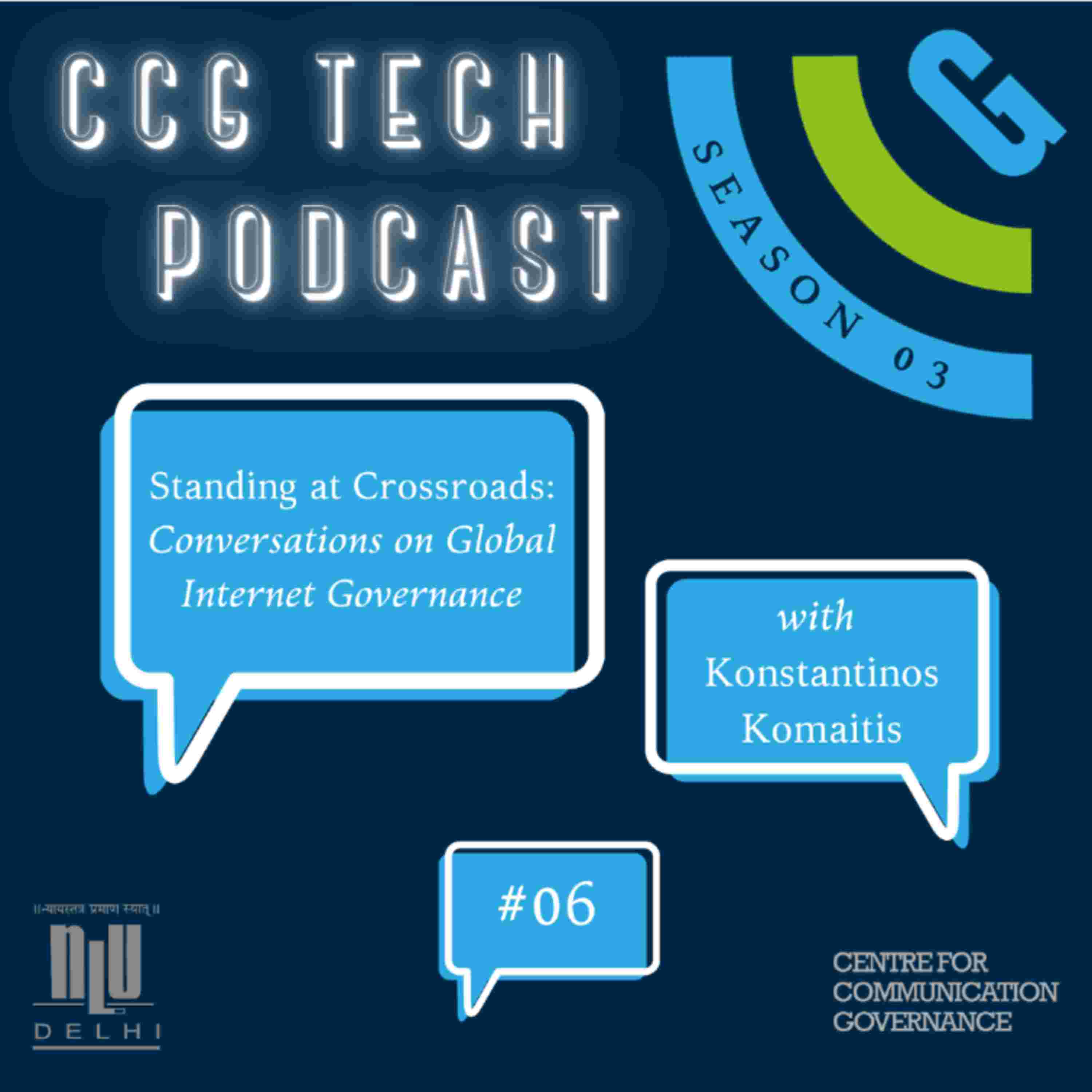
The CCG Tech Podcast is designed to engage with and connect academics, policy professionals, decision-makers, and others interested in issues of information technology law and policy. We talk to subject matter experts, technologists, and decision-makers to discuss the implications of emerging technologies on law and policy, and our daily lives.
With the rapid pace at which global technologies are evolving, we hope this podcast will create more spaces for conversations, diverse perspectives, thoughts and approaches to how we can bring considerations for societal benefit, democratic values, and constitutional principles closer to the core of technology development.
The CCG Tech Podcast is designed to engage with and connect academics, policy professionals, decision-makers, and others interested in issues of information technology law and policy. We talk to subject matter experts, technologists, and decision-makers to discuss the implications of emerging technologies on law and policy, and our daily lives.
With the rapid pace at which global technologies are evolving, we hope this podcast will create more spaces for conversations, diverse perspectives, thoughts and approaches to how we can bring considerations for societal benefit, democratic values, and constitutional principles closer to the core of technology development.

Technology has shifted massively in the last two decades and with it, the world. The upcoming WSIS+20 review puts into sharp focus a few longstanding conversations in global internet governance. In Episode 06 of The CCG Tech Podcast, Jhalak and Shashank speak with Konstantinos Komaitis on the future of global internet governance. They look at the evolution of WSIS, questions of multistakeholderism, enhanced cooperation, etc., and the role of various stakeholders in the governance conversation.
Konstantinos Komaitis is a Senior Resident Fellow for Global and Democratic Governance at the Digital Forensics Research Lab (DFRLab) at the Atlantic Council. He is also a non-resident fellow and senior researcher at the Lisbon Council. Konstantinos has spent ten years in active policy development and strategy as a Senior Director at the Internet society, where he led successfully a series of projects, including the IANA transition. Before joining the Internet Society, he spent 7 years as a senior lecturer at the university of Strathclyde, Glasgow, UK, where he was researching and teaching Internet policy, with particular focus on Internet governance, intellectual property, trade and cybersecurity.
Resources:
Definition included in Clause 34 of the Tunis Agenda - https://www.itu.int/net/wsis/docs2/tunis/off/6rev1.html
https://cdn.internetdemocracy.in/idp/assets/downloads/reports/unlocking-enhanced-cooperation/Unlocking-Enhanced-Cooperation.pdf
https://dig.watch/event/wsis20-high-level-event-2025/enhanced-cooperation-in-the-digital-age-from-concept-to-commitment-at-wsis20
https://www.internetgovernance.org/2018/02/10/goodbye-good-riddance-enhanced-cooperation/
Hosts: Jhalak Kakkar, Shashank Mohan
Editor: Gopika P
Fact Checker: Sukriti
This podcast is created by the Centre for Communication Governance at NLUD. Reach out for any queries / suggestions at ccgoutreach@nludelhi.ac.in
(The opinions expressed in the episode are personal to the speaker. The University does not subscribe to the views expressed in the episode and does not take any responsibility for the same.)